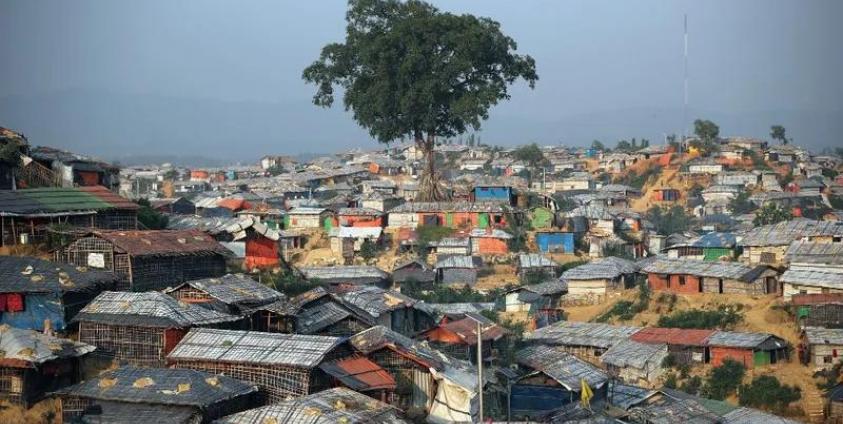Dr. Ko Ko Naig, a Permanent Secretary of the Military Council, has announced their commitment to take back Rohingya refugees who sought shelter in Bangladesh, and resettle approximately 7,000 of them this year.
“In the early stage, we’ll accept a limited number of individuals as a pilot project. We will increase numbers over time. As per theKunming agreement, we need to resettle approximately 7000 people this year, and we’ll make the necessary arrangements as efficiently as possible”, he said.
On September 2nd, a delegation comprising heads of 16 embassies and diplomats, representing countries such as Bangladesh, Thailand, and Sri Lanka, toured the projects in Maungdaw Township, initiated by the Military Council for the resettlement of returning refugees. The visit was organized under the leadership of U Ko Ko Hlaing, a Union-level minister of the Military Council.
UN Special Rapporteur on the situation of human rights in Myanmar, Tom Andrews, said there were reports that Bangladeshi authorities were using deceptive and coercive measures to compel Rohingya refugees to return to Myanmar. “Conditions in Myanmar are anything but conducive for the safe, dignified, sustainable, and voluntary return of Rohingya refugees,”
In the UN expert Report on June 8th Andrews condemned the pilot scheme, “Senior General Min Aung Hlaing, who commanded the forces that launched the genocidal attacks against the Rohingya, now leads a brutal military junta that is attacking civilian populations while denying the Rohingya citizenship and other basic rights,” he said “Conditions in Myanmar are anything but conducive for the safe, dignified, sustainable, and voluntary return of Rohingya refugees.”
Upon their return from Bangladesh, refugees will undergo e-ID verification as part of the security and immigration procedures, following which they will be issued national identification cards, said Union Minister of Union Government Office 2 U Ko Ko Hlaing who is also Vice-Chair 1 of the Rakhine State Stability, Peace and Development Work Coordination Committee.
Upon arriving at the reception point, the returnees will initially be accommodated at the Hla Pho Khaung interim camp. Following a stay ranging from a few weeks to several months, they will then be allocated to permanent settlement locations, according to U Ko Ko Hlaing.
The UN Human Rights specialist Tom Andrews points out, “Under the pilot project, Rohingya refugees will not be allowed to return to their own villages, many of which were razed to the ground during the genocidal attacks of 2017. The refugees would be moved to a designated area of 15 newly constructed “villages” – places they will not be allowed to leave freely.”
The Junta ‘s U Ko Ko Hlaing sweet-sounding promises includes. “We’ll supply fishermen with boats and nets, and farmers with seeds, fertilizers, plows, and tractors. For the first three months, we’ll ensure they have enough food, but after that, they’ll need to be self-reliant”, he said. but analysts are skeptical of these promises, and it is not clear where the funding is coming from.
Analysts assert that the Military Council’s success in resettling refugees who fled to Bangladesh relies on their engagement with the influential United League of Arakan (ULA) in the region, without which success is unlikely. It also depends on the UNHCR – the UN refugee agency that so far has been largely excluded from the pilot scheme.
UHCR insists that without verification that the 7000 refugees have voluntarily consented to repatriation, the pilot scheme would violate the UN Charter on refugee rights. Tom Andrews reported to the UN Human Rights Office concludes “Bangladesh must immediately suspend a pilot repatriation project for Rohingya to return to Myanmar, where they face serious risks to their lives and liberty.”







